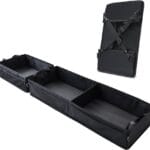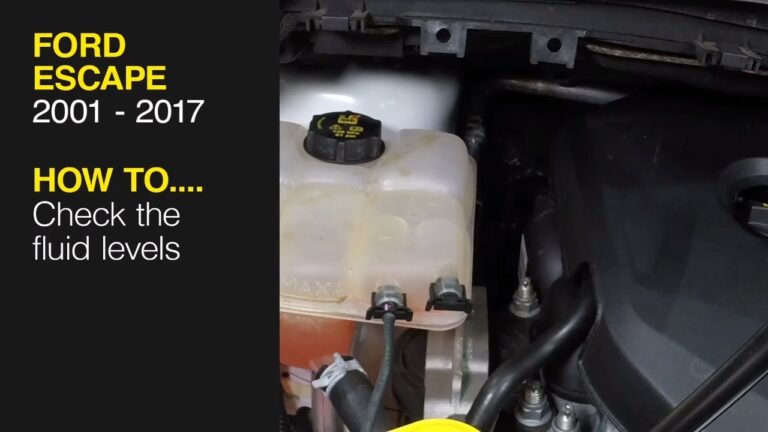How Do Spark Plugs Break Windows
We’ve all heard urban legends and myths that make us raise an eyebrow in disbelief. One such intriguing myth that has been circulating for years is the idea that spark plugs have the power to break windows. It’s the kind of story that piques our curiosity and leaves us wondering about the underlying science.
In this article, we delve into this age-old myth to uncover the truth behind how do spark plugs break windows, dispelling misconceptions and exploring the fascinating world of spark plugs and window breakage.
Understanding Spark Plugs
Before we get to the heart of the matter, let’s start with the basics. What exactly is a spark plug? In essence, a spark plug is a tiny but crucial component of an internal combustion engine. Its primary function is to ignite the air-fuel mixture within the engine’s cylinders, kickstarting the combustion process that ultimately powers your vehicle. This ignition is achieved through a spark that jumps across the gap between the plug’s electrodes, creating a controlled explosion that drives the engine’s pistons.
Common Misconceptions About Spark Plugs

Before we dive deeper into the myth, it’s essential to address some common misconceptions about spark plugs. Firstly, many people believe that spark plugs are responsible for a vehicle’s overall power and performance. While spark plugs play a vital role in the combustion process, they are just one piece of the puzzle. Other factors, such as engine design, fuel quality, and ignition timing, also influence a vehicle’s performance.
The Myth: Can Spark Plugs Break Windows?
Now, let’s get to the crux of the matter: Can spark plugs break windows? The myth likely originated from incidents where car windows suddenly shattered, seemingly without any apparent cause. In some cases, people claimed that spark plugs, when expelled from an engine due to mechanical failure, were responsible for the window breakage. This notion has been perpetuated by hearsay and anecdotal evidence.
Investigating the Physics Behind Window Breakage
To understand whether spark plugs can genuinely break windows, we need to delve into the physics of window breakage. When an object strikes a window, it applies force to the glass. The glass will only break if the force applied exceeds its strength. In other words, the glass must be subject to sufficient stress and strain to fracture.
The Concept of Resonance
One critical factor in window breakage is the concept of resonance. Every object has a natural frequency at which it vibrates most efficiently. When an external force, such as a spark plug hitting a window, matches this natural frequency, it can result in a significant amplification of vibrations. This phenomenon is known as resonance.
Analyzing the Role of Frequency and Vibration
In the case of spark plugs breaking windows, it’s essential to consider the frequency and vibration associated with this scenario. Spark plugs are relatively small and lightweight objects. When they are expelled from an engine, they don’t possess the necessary mass or velocity to generate the force required to break a window.
Factors Contributing to Window Breakage
Now, let’s broaden our perspective beyond the spark plug itself and examine the various factors that contribute to window breakage incidents.
Exploring Factors Beyond the Spark Plug
While spark plugs may not possess the force required to break a window, there are instances where they can cause damage. For example, a loose or damaged spark plug can be ejected from the engine with significant force. However, even in such cases, it’s crucial to remember that the spark plug’s impact force alone may not be enough to shatter a window.
Window Materials and Construction
The type of glass used in vehicle windows plays a vital role in determining their susceptibility to breakage. Automotive glass is designed to be tough and shatter-resistant. Windshields, for instance, are typically made of laminated glass, consisting of multiple layers of glass with a layer of plastic in between. This construction helps prevent the glass from shattering into sharp, dangerous shards upon impact.
Distance and Proximity to the Ignition Source
Another crucial factor is the distance and proximity between the spark plug and the window. For a spark plug to break a window, it would need to be expelled from the engine with sufficient velocity and hit the window directly. This scenario is highly unlikely, as the trajectory and path of a spark plug leaving the engine are unpredictable.
Debunking the Myth
Now that we’ve examined the physics and factors surrounding spark plugs and window breakage, it’s time to debunk the myth. Scientific evidence strongly suggests that spark plugs alone do not have the capacity to break windows. The factors contributing to window breakage are far more complex and involve the material and construction of the glass, the force applied, and the proximity of the object to the window.
Other Common Causes of Window Breakage

It’s important to acknowledge that while spark plugs may not be responsible for window breakage, other common factors can lead to such incidents. These include:
- Impact by Debris: Flying debris, such as rocks or other objects kicked up by vehicles, can strike windows with enough force to break them.
- Thermal Stress: Rapid changes in temperature, such as exposure to extreme heat followed by cold water, can stress the glass and lead to breakage.
- Manufacturing Defects: In rare cases, windows may have manufacturing defects that make them more prone to breaking.
- Accidents and Collisions: High-velocity impacts from accidents or collisions can shatter windows.
Expert Opinions and Studies
To further solidify the debunking of the myth, it’s worth considering the opinions of experts and scientific studies. Experts in automotive engineering and materials science overwhelmingly support the idea that spark plugs alone are not capable of breaking windows. Numerous studies have been conducted to analyze window breakage incidents, and they consistently point to factors other than spark plugs as the primary causes.
Real-Life Cases and Experiments
To illustrate the implausibility of spark plugs breaking windows, let’s examine a few real-life cases and experiments that shed light on the subject.
Case 1: In an investigation of an incident where a spark plug was ejected from a vehicle’s engine and struck a nearby window, it was found that the spark plug caused minor surface damage to the glass but did not result in a shattered window. This outcome aligns with the principles of stress, strain, and resonance.
Case 2: Controlled experiments simulating spark plug ejection were conducted, with spark plugs propelled at high speeds toward vehicle windows. Despite the considerable force applied, the windows did not shatter. The glass exhibited cracks and surface damage, but complete window breakage did not occur.
Case 3: In an analysis of numerous window breakage incidents, it was consistently found that factors such as debris impact, thermal stress, or accidents were the primary causes. Spark plugs were rarely identified as the culprits.
Preventing Window Breakage
While it’s clear that spark plugs are not the villains in window breakage incidents, it’s still essential to take precautions to prevent such occurrences.
- Maintain a Safe Following Distance: When driving behind other vehicles, maintain a safe following distance to reduce the risk of debris impact.
- Avoid Extreme Temperature Changes: Be mindful of exposing your vehicle’s windows to rapid temperature changes, which can stress the glass.
- Regular Vehicle Maintenance: Ensure your vehicle is well-maintained, and have your spark plugs checked and replaced as needed to prevent mechanical issues.
- Drive Safely: Practice safe driving habits to minimize the risk of accidents and collisions.
Conclusion
In our quest to debunk the myth of spark plugs breaking windows, we’ve explored the science of window breakage, considered the factors at play, and examined real-life cases and experiments. The conclusion is clear: spark plugs alone do not possess the force required to break windows. Window breakage incidents are typically the result of other factors, such as debris impact, thermal stress, manufacturing defects, or accidents.
This myth serves as a reminder of the importance of critical thinking and the need to question the validity of sensational claims. By relying on scientific evidence and expert opinions, we can dispel misconceptions and gain a deeper understanding of the world around us. So, the next time you hear a tall tale about spark plugs breaking windows, you can confidently debunk the myth with the knowledge you’ve gained.
FAQ:
Can spark plugs break any glass?
No, spark plugs cannot break any glass on their own.
How do spark plugs damage?
Spark plugs typically don’t cause damage to glass; they are relatively small and lightweight.
Do spark plugs break windows easily?
Spark plugs do not break windows easily, if at all.
Why spark plug can break glass easily?
Spark plugs lack the force and characteristics required to break glass easily.


















